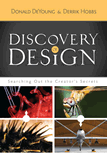
Monarch Butterflies Prescribing Medicine for Offspring
Monarch butterflies are famous for their distinctive coloration and multigenerational migration. Now, they may become famous for something else: prescribing medicine for their offspring.
News Source
Research at Emory University has revealed a shockingly sophisticated behavior in monarch butterflies: selective laying of eggs on medicinal plants when the egg-laying female butterfly is infected by a parasite. A team led by evolutionary biologist Jaap de Roode investigated patterns of egg laying by female monarchs in an attempt to determine when (and why) butterflies lay their eggs on more or less toxic or nontoxic species of milkweed (which serves as the food source for monarch larvae).
Based on previous research, the scientists knew the selection of milkweed plant was connected to avoiding predation. (Monarchs that consume toxic milkweed as larva are toxic for any predator even after the caterpillar matures into a butterfly.) De Roode, however, wondered if the egg-laying patterns could also be related to Ophryocystis elektroscirrha, a parasite that infects the monarchs throughout all life stages, is passed on through reproduction, and is potentially fatal.
A battery of experiments in the lab showed that infected monarchs preferred to lay their eggs on a toxic species of milkweed, whereas uninfected females selected species at random. “We have . . . found that infected female butterflies prefer to lay their eggs on plants that will make their offspring less sick, suggesting that monarchs have evolved the ability to medicate their offspring,” de Roode said. Of particular interest is that the mother butterfly does not benefit from laying eggs on toxic plants; only her offspring do.
Animals’ ability to medicate themselves has not been studied extensively, which inspires University of Michigan chemical ecologist Mark Hunter, who contributed to the findings. “Studying organisms engaged in self-medication gives us a clue as to what compounds might be worth investigating for their potential as human medicines,” he explained. The case of the pharmaceutical monarchs is thus another example of humans looking to learn from God’s incredible creation and a way that God has provided for and designed the monarch for living in a fallen world.
Further Reading
- Get Answers: Design in Nature
For More Information: Get Answers
Remember, if you see a news story that might merit some attention, let us know about it! (Note: if the story originates from the Associated Press, FOX News, MSNBC, the New York Times, or another major national media outlet, we will most likely have already heard about it.) And thanks to all of our readers who have submitted great news tips to us. If you didn’t catch all the latest News to Know, why not take a look to see what you’ve missed?
(Please note that links will take you directly to the source. Answers in Genesis is not responsible for content on the websites to which we refer. For more information, please see our Privacy Policy.)
Recommended Resources

Answers in Genesis is an apologetics ministry, dedicated to helping Christians defend their faith and proclaim the good news of Jesus Christ.
- Customer Service 800.778.3390
- Available Monday–Friday | 9 AM–5 PM ET
- © 2026 Answers in Genesis




